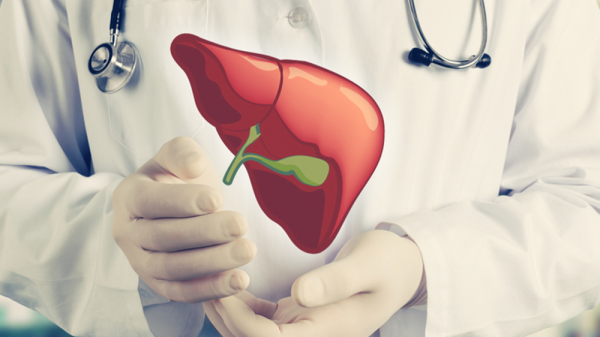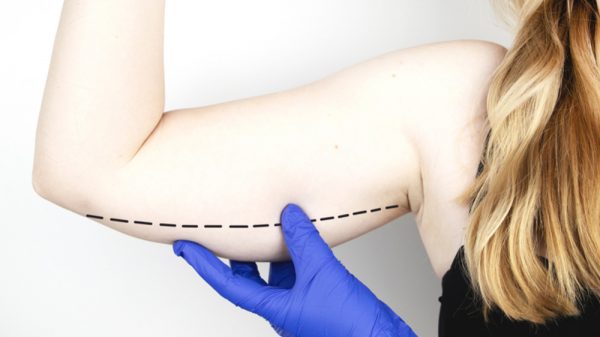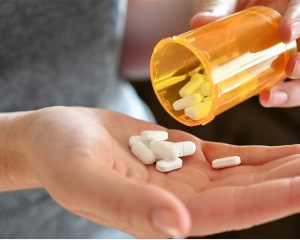Addiction is an epidemic in the United States. Individuals can be addicted to a variety of substances, including alcohol, prescription medications like oxycodone, street opioids like heroin, hallucinogens like LSD, and stimulants like methamphetamine. Substance abuse is a serious condition that can derail life goals, sabotage careers, and destroy relationships. The disease can also cause damage to your physical and mental health and can even put your life in jeopardy. Are you or a loved one struggling with addiction? Here we go through addiction treatment options and what you can do to manage the disorder and get your life back.
Recovery Is Possible
The road to recovery from drug addiction can be challenging, but there are many treatment and management options for getting and staying clean.
Physical Healing and Good Nutrition
Even after you’ve gone through the detox process to break the physical addiction to alcohol and substances, your body still needs to heal from the damage that drugs or alcohol has inflicted on your organ systems. In a nutshell, substances cause oxidative damage and inflammation in body tissues, while simultaneously inhibiting the normal absorption of critical nutrients that the body needs.
The good news is that the body can heal from drug-induced damage after you are sober. For example, if you have alcoholic fatty liver disease, eliminating alcohol intake and eating a balanced diet that includes antioxidants from fruits and veggies, essential amino acids from high-quality protein, and fiber from whole grains can support liver health.
Fruits and Veggies
Fruits and vegetables are packed with antioxidants, vitamins, and minerals that the body needs to repair from alcohol and drug use. Antioxidants support the immune system in repairing damage sustained from chronic drug or alcohol abuse. Reach for fruits and veggies like broccoli, spinach, sweet potatoes, berries, apples, and oranges.
High-Quality Protein
High-quality protein offers optimal ratios of essential amino acids, which the body needs to build muscle tissue. Excessive drug and alcohol use often results in serious weight loss and muscle wasting. As part of the recovery process, eating plenty of high-quality protein can help you regain healthy weight and muscle mass.
Moreover, getting balanced ratios of essential amino acids can support liver health and fight fatty liver disease. In an article published in Nutrients, researchers conducted a pilot study examining the effect of essential amino acid supplementation on individuals with alcohol use disorder. (1) Results revealed that in comparison to the control, the group taking the substance had significantly lower liver fat levels. (1)
You can get optimal ratios of essential amino acids from foods like lean meats, eggs, and low-fat dairy. Eating a combination of veggie protein also offers essential amino acids. For example, reach for foods like nuts, seeds, beans, soy products, and whole grains throughout the day. Alternatively, a high-quality supplement is an excellent option.
Fiber
Getting plenty of fiber in your diet can help restore digestive health while also reducing inflammation associated with drug and alcohol use. Reach for foods like whole-grain bread, whole-grain pasta, quinoa, brown rice, and beans to increase the fiber intake in your diet.
Joining a Support Group
Alcoholics Anonymous (AA) and Narcotics Anonymous (NA) are nationwide programs that connect recovering substance abusers through in-person meetings and online platforms. AA and NA are support groups that provide guidance for living sober and are structured around a 12-steps that many recovering addicts find helpful.
Addiction recovery and addiction treatment is often a life-long journey. Keep your support group strong and continue going to AA and NA meetings regularly. Having a core backbone of peers and mentors on the same journey can help prevent relapse.
Consider an Inpatient Treatment Program
Addiction treatment and addiction recovery is tough when you’re doing it alone. Entering a treatment program can provide structure for the initial part of your recovery journey while also supporting the initial detoxification process from your drug of choice.
An inpatient treatment facility can be particularly helpful by removing you from your environment and creating distance between you and triggers. An outpatient treatment program can also help provide structure by holding you accountable to appointments with physicians and mental health specialists. Make sure to choose an accredited treatment program with licensed treatment providers.
Medication-Assisted Treatment
It may seem counterintuitive that more substances can be effective for fighting substance abuse disorder. However, certain medications can be helpful components of treatment plans for some individuals. This is especially the case if you are addicted to opioids.
A health care provider may decide to prescribe medications like buprenorphine or methadone to suppress cravings and prevent withdrawal symptoms. For individuals with alcohol addiction, medications like acamprosate or disulfiram may be used to discourage alcohol use. Naltrexone is another example of a medication that can block the effect of drugs like opioids and alcohol, reducing the incentive to use. Medication may be used to treat any underlying mental health conditions, such as depression or anxiety.
Make Sober Friends
Though millions of Americans drink and use drugs, there are also millions of Americans who don’t drink or use drugs. It’s just a matter of finding them. Making sober friends is crucial for maintaining your sobriety. Surrounding yourself with others who have had similar experiences creates a supportive, team-oriented environment. Creating your support system can help you maintain a life that revolves around sobriety.
Consider a Sober Living Environment
Going to a treatment program and returning to the same environment where you used drugs increases the likelihood of relapsing. Instead of returning to your previous environment, consider moving into a sober living environment. Recovery housing and transitional housing settings are designed to provide structure and support in a drug-free environment. Many recovery housing options also offer services like life skills support, employment support, educational opportunities, and social activities.
Cut Off Unsupportive People
Though it may seem harsh to drop friends who aren’t supportive, it’s imperative that you prioritize yourself during your recovery process. Staying in contact with individuals you used to use with will only make recovery more difficult, and relapse more likely. Instead, stay connected to those who support your new sober way of living.
Determine the Psychological Factors Influencing Drug Use
Many times, psychological factors underlie the physical urge to use drugs and alcohol. These factors may include an undiagnosed mental illness, trauma, or other form of psychological pain. In many cases, using alcohol and drugs is a self-medication technique to manage the underlying psychological issue. Determining the psychological factors driving your desire to drink will be essential for fighting cravings and maintaining sobriety.
Therapy is an invaluable resource for managing the psychological factors associated with addiction. Therapists use a variety of effective techniques, such as cognitive behavioral therapy (CBT).
Don’t Beat Yourself Up for Relapsing
Relapse is common during the addiction recovery journey. Addiction has very real biochemical and psychological reasons for relapse. If you relapse, there are things you can do. Reach out as soon as possible. Call up a mentor from AA or NA, your sober friends, or a trusted loved one. Surrounding yourself with supportive individuals can help you recover from the relapse and continue your sobriety journey.
Learning New Skills
With drinking no longer a part of your daily routine, you will likely have a little more time on your hands to devote to new activities and hobbies. Staying busy and trying new things is crucial for keeping your mind occupied and decreasing the risk of relapsing. A few examples of new activities to try include rock climbing, playing sports, and cooking.
Stress Management Strategies
Stress is a common trigger for many recovering addicts. Self-medicating anxiety with alcohol may have even been a large reason for drinking in the first place. Either way, managing stress after you become sober is key to maintaining your sobriety. Activities like yoga, meditation, and deep breathing are critical for warding off anxious thoughts and helping you recenter.
Family Therapy
Substance abuse is often described as a family disease. If a family member is struggling with substance use disorder, it can be extremely distressing and take a toll on the whole family. Family therapy can help you cope and recover from a loved one’s drug use and the associated consequences.
Resources
If you are worried about substance use for yourself or a loved one, it’s important to have resources on hand for support.
- Your doctor: Your primary care physician can assess your symptoms and provide referrals to mental health services, behavioral health support, and treatment options.
- SAMHSA: The Substance Abuse and Mental Health Services Administration is part of the U.S. Department of Health and Human Services and provides support for and resources through the Center for Substance Abuse Prevention.
- NIDA: The National Institute on Drug Abuse provides information, research, and training.
Key Takeaways: What You Should Know About Addiction Treatment
Addiction is a complex, multi-faceted condition that requires several levels of care to successfully manage. Recovery from addiction is a life-long journey. Detoxification, medication-assisted treatment, therapy, support groups, good nutrition, and lifestyle changes are all integral parts of an effective treatment plan.
References:























